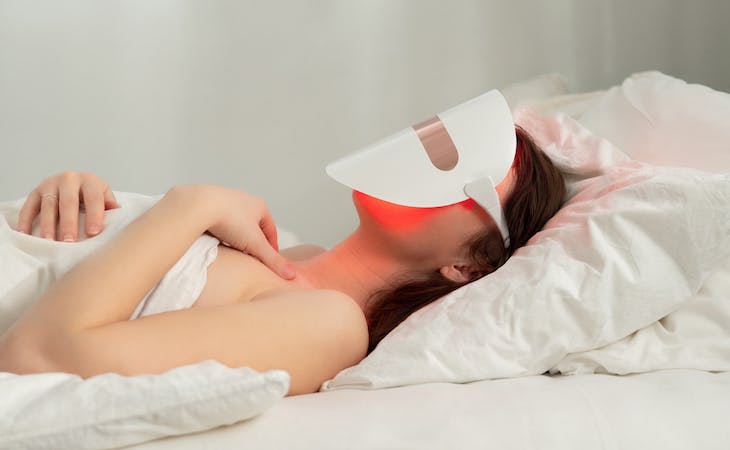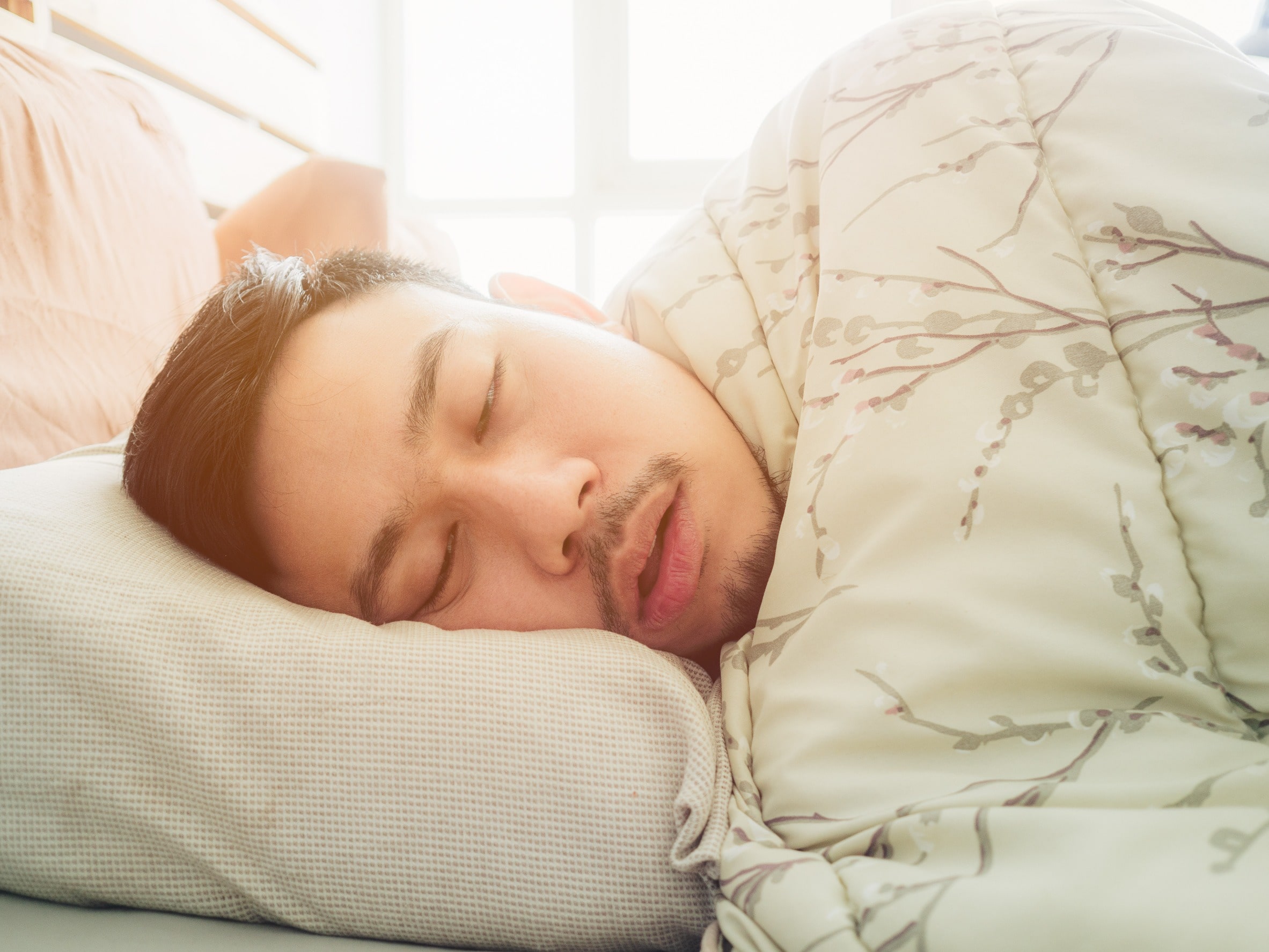Advanced Sleep Therapy - Achieve Deep, Restful Sleep
Advanced Sleep Therapy - Achieve Deep, Restful Sleep
Blog Article
Effective Therapy Solutions for Managing Sleep Disorders and Enhancing Relaxed Rest
In the realm of health care, the administration of rest problems and the quest for restful rest are critical elements of overall wellness. As we navigate the elaborate landscape of sleep conditions and seek to enhance our rest experience, a deeper understanding of these therapy options may hold the secret to unlocking an extra rejuvenating and satisfying corrective trip.
Cognitive Behavior Treatment for Sleeping Disorders (CBT-I)
Cognitive Behavior Modification for Sleeping Disorders (CBT-I) is an organized, evidence-based treatment strategy that concentrates on attending to the hidden variables adding to sleep disturbances. This kind of therapy aims to change habits and ideas that intensify sleeplessness, eventually promoting healthy rest patterns. CBT-I normally includes a number of vital components, including cognitive therapy, sleep restriction, stimulation control, and sleep health education.
Cognitive therapy helps people identify and transform unfavorable idea patterns and beliefs concerning sleep that might be preventing their ability to fall or remain asleep. Rest limitation entails limiting the quantity of time invested in bed to match the person's real rest duration, consequently raising sleep efficiency (sleep improvement therapy). Stimulus control methods help establish a strong organization in between the bed and sleep by urging individuals to visit bed just when sleepy and to prevent taking part in boosting tasks in bed
Additionally, sleep hygiene education and learning concentrates on developing healthy rest habits, such as keeping a constant sleep timetable, creating a relaxing bedtime regimen, and optimizing the rest atmosphere. By resolving these aspects thoroughly, CBT-I supplies a reliable non-pharmacological treatment for handling sleeping disorders and enhancing general rest high quality.
Rest Hygiene Practices
Having actually developed the foundation of cognitive restructuring and behavior alterations in dealing with insomnia via Cognitive Behavioral Treatment for Sleep Problems (CBT-I), the focus now moves towards exploring crucial Sleep Hygiene Practices for preserving optimal rest quality and general wellness.
Rest health practices encompass a variety of behaviors and environmental variables that can considerably impact one's capacity to drop off to sleep and stay asleep throughout the evening. Regular rest and wake times, creating a relaxing bedtime routine, and maximizing the sleep atmosphere by maintaining it dark, silent, and cool are important elements of great rest health. Restricting exposure to screens before going to bed, preventing energizers like caffeine near to going to bed, and participating in regular physical task throughout the day can also advertise far better sleep high quality.
In addition, practicing leisure strategies such as deep breathing exercises or reflection before bed can assist soothe the mind and prepare the body for sleep. By integrating these sleep hygiene methods into one's daily routine, individuals can develop a healthy and balanced rest pattern that sustains peaceful sleep and total wellness.
Relaxation Techniques and Mindfulness
Implementing relaxation techniques and mindfulness methods can play a critical duty in cultivating a sense of calm and promoting quality rest. In addition, led images can aid deliver individuals to a relaxed area in their minds, aiding Read Full Report in tension decrease and improving sleep quality.
By including these practices right into a bedtime routine, people can signify to their bodies that it is time to prepare and loosen up for rest. In general, integrating leisure methods and mindfulness practices can significantly add to taking care of sleep disorders and boosting general sleep quality.

Medicine Options for Sleep Disorders
After discovering relaxation strategies and mindfulness practices as non-pharmacological interventions for improving sleep quality, it is important to consider medication options for individuals with sleep disorders. In cases where way of living modifications and treatment do not supply enough relief, medicine can be a useful tool in taking care of rest disruptions.
Commonly suggested drugs for sleep conditions include benzodiazepines, non-benzodiazepine hypnotics, antidepressants, and melatonin receptor agonists. Benzodiazepines, such as diazepam, are sedatives that can aid cause sleep, yet they are typically advised for temporary usage because of the danger of reliance. Non-benzodiazepine hypnotics like zolpidem are additionally utilized to treat sleeping disorders and have a reduced threat of reliance contrasted to benzodiazepines. Antidepressants, such as trazodone, can be advantageous for people with co-occurring depression and sleep disruptions. Melatonin receptor agonists, like ramelteon, target the body's natural sleep-wake cycle and can be helpful for managing rest patterns.
It is vital for individuals to talk to a doctor to determine the most suitable drug choice based on their specific sleep disorder and medical background.
Light Treatment for Circadian Rhythm Law
Light treatment, additionally called photo-therapy, is a non-invasive treatment technique made use of to manage circadian rhythms and enhance sleep-wake cycles. This therapy involves direct exposure to brilliant light that mimics all-natural sunlight, which aids to reset the body's interior clock. By exposing individuals to details wavelengths of light, generally in the early morning or evening depending on the preferred effect, light treatment can properly change the body clock to promote wakefulness throughout the day and enhance peaceful rest Home Page in the evening.
Research has actually shown that light therapy can be particularly helpful for people with circadian rhythm disorders, such as delayed sleep stage disorder or jet lag. It can likewise be valuable for those experiencing seasonal affective problem (SAD), a kind of anxiety that normally happens throughout the winter season when all-natural light exposure is minimized. Light treatment is normally well-tolerated and can be used combined with various other therapy approaches for sleep problems to optimize outcomes and improve total sleep quality.
Verdict
Finally, effective therapy solutions for taking care of sleep conditions and enhancing peaceful rest Resources consist of Cognitive Behavioral Therapy for Insomnia (CBT-I), rest hygiene methods, leisure strategies and mindfulness, drug choices, and light therapy for circadian rhythm policy. These approaches can aid people improve their rest top quality and overall health. It is crucial to talk to a doctor to identify one of the most appropriate strategy for dealing with sleep problems.
As we navigate the elaborate landscape of rest disorders and look for to improve our sleep experience, a deeper understanding of these treatment services might hold the secret to opening an extra relaxing and meeting corrective journey.
Sleep limitation involves limiting the quantity of time spent in bed to match the individual's actual rest period, thereby increasing rest efficiency. Consistent sleep and wake times, creating a relaxing bedtime routine, and maximizing the sleep environment by maintaining it dark, quiet, and cool are essential elements of good sleep hygiene. Light treatment is typically well-tolerated and can be made use of in combination with other therapy approaches for sleep problems to enhance outcomes and boost general rest high quality.

Report this page